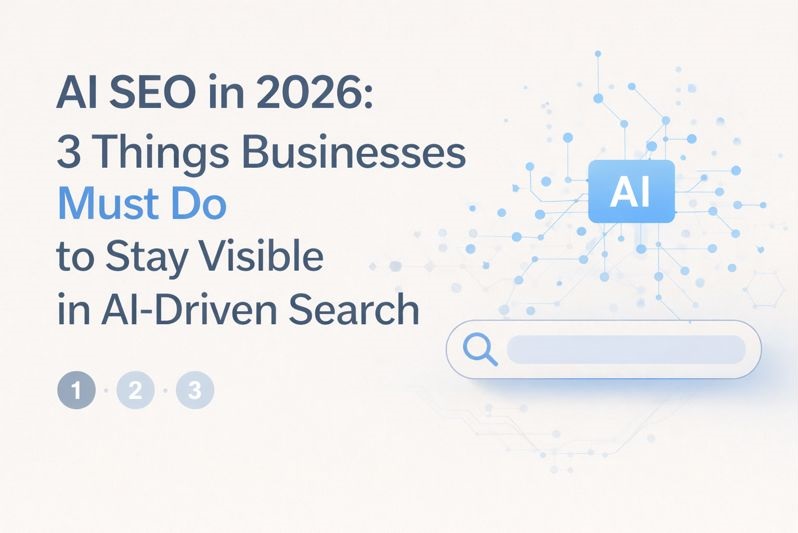Introduction
In today’s digital age, it is of utmost importance for healthcare providers to establish a robust online presence to facilitate effective patient connections and to remain competitive in the healthcare industry. An essential component of this online presence is Search Engine Optimization (SEO). SEO is a continuously changing field, emphasizing the need for doctors and medical practices to stay well-informed about the most recent trends and advances in the digital realm. This knowledge empowers them to improve their online visibility and engage effectively with their patient base. This blog is dedicated to delving into the key healthcare SEO trends in 2023 that doctors should be aware of and integrate into their digital strategies. This proactive approach not only enhances online visibility but also cultivates meaningful patient engagement, ultimately benefiting both their practice and the individuals they serve.
1. Voice Search Optimization
The Rise of Voice Search
The method by which individuals seek information on the internet is swiftly changing, with voice search gaining considerable traction. The widespread use of voice-activated devices and virtual assistants like Siri, Alexa, and Google Assistant has simplified users’ interactions with the internet through natural language. Healthcare professionals need to adjust to this trend by ensuring their online presence is optimized for voice search.
Strategies for Voice Search Optimization
To make your healthcare website voice-search-friendly, consider these strategies:
a. Use Conversational Keywords: Optimize your content with conversational and long-tail keywords that mimic the way people speak.
b. Create FAQ Sections: Implement FAQ sections on your website to address common patient queries, as these are more likely to align with voice search queries.
c. Mobile Optimization: Ensure your website is mobile-responsive, as voice searches are often conducted on smartphones.
2. Mobile-Friendly Websites
The Dominance of Mobile Devices
In 2023, mobile internet usage will surpass desktop usage. Google’s algorithm gives preference to mobile-friendly websites, elevating their search engine rankings. It is now required, not simply an option, for doctors and other healthcare practitioners to have a mobile-friendly website.
Suggestions for Mobile Enhancement
Consider the following actions to ensure that your website is mobile-friendly:
a. Use responsive design: To ensure seamless and user-focused engagement by creating a website that can adjust to various screen sizes.
b. Mobile Page Speed: Enhance your website’s loading speed on mobile devices, which can have a positive impact on your SEO.
c. Mobile-First Indexing: Be aware that Google primarily uses the mobile version of your site for ranking and indexing purposes.
3. Local SEO
The Importance of Local Search
Local SEO is vital for healthcare providers since patients typically search for healthcare services within their geographic area. Optimizing your online presence for local search is essential for reaching the right audience.
Strategies for Local SEO
Elevate your local SEO by implementing these strategies:
a. Google My Business: Keep your Google My Business profile precise and current, including vital details like your address, contact information, and operating hours.
b. Patient Reviews: Motivate your patients to share their feedback on your Google My Business profile, and make it a priority to respond promptly to both positive and negative comments.
c. Location-Targeted Keywords: Infuse your website content with keywords specific to your location to heighten your visibility in local search results.
4. Content Quality and Expertise
The Importance of High-Quality Content
Google’s algorithms prioritize high-quality and authoritative content. In the healthcare industry, doctors must demonstrate their expertise through their website content to establish trust with patients and search engines.
Strategies for Content Quality
To improve the quality of your healthcare content:
a. Accuracy and Relevance: Ensure your content is well-researched, accurate, and up-to-date, providing valuable information to your audience.
b. Authoritative Content: Showcase your expertise by publishing whitepapers, case studies, and blog posts that highlight your medical knowledge and experience.
5. Video Marketing
The Power of Video Content
Video content has gained significant traction in the healthcare industry, as it provides a more engaging and informative way to connect with patients. Doctors can leverage video marketing to enhance their online presence and educate their audience.
Strategies for Video Marketing
To harness the potential of video marketing:
a. Educational Videos: Create informative videos on various health topics, treatment procedures, and patient testimonials.
b. YouTube Presence: Establish and optimize your presence on YouTube, the second-largest search engine, to reach a broader audience.
6. Schema Markup
Enhancing Search Visibility with Schema Markup
Schema markup, often referred to as structured data, plays a crucial role in enabling search engines to gain a deeper understanding of the content featured on your website. As a result, this can lead to the presentation of enriched snippets in search outcomes, offering users more comprehensive information.
Implementing Schema Markup
To leverage schema markup effectively:
a. Rich Snippets: Implement schema markup to highlight important details such as doctor profiles, patient reviews, appointment booking options, and medical FAQs.
b. Structured Data Testing: Use Google’s Structured Data Testing Tool to ensure your schema markup is correctly implemented.
7. User Experience (UX)
The Significance of User Experience
Making sure that users have a great experience is crucial because it affects your SEO rankings and increases patient satisfaction. A website that is well-designed, simple to use, loads quickly, and has no problems has a greater chance of ranking well in search results.
Strategies for Improving UX
To enhance the website user experience:
a. Clear Navigation: Implement an intuitive website structure with straightforward navigation to help users find information easily.
b. Page Loading Speed: Optimize your website for speed by compressing images and minimizing code.
c. Error-free Design: Regularly check your website for errors, broken links, and issues that may deter users.
8. Secure and Fast Websites
The Role of Website Security and Speed
Website security and speed have become important ranking factors in Google’s algorithm. Ensuring a secure and fast website not only enhances SEO but also builds patient trust.
Enhancing Website Security and Speed
To boost website security and speed:
a. HTTPS Protocol: Secure your website with HTTPS to encrypt data and protect patient information.
b. Speed Optimization: Minimize page load times by optimizing images, using efficient code, and utilizing content delivery networks (CDNs).
9. Social Media Integration
Leveraging Social Media for SEO
Social media is a powerful tool for connecting with patients and promoting healthcare services. Integrating social media into your SEO strategy can significantly enhance your online presence and engagement.
Social Media Integration Strategies
To maximize the benefits of social media:
a. Informative Content: Share relevant and informative content on your social media channels to engage your audience.
b. Patient Testimonials: Encourage satisfied patients to share their positive experiences on social media, further enhancing your reputation.
c. Consistent Posting: Maintain a regular posting schedule to keep your audience engaged and informed.
10. E-A-T (Expertise, Authoritativeness, Trustworthiness)
Google’s Emphasis on E-A-T
Google places strong importance on E-A-T (Expertise, Authoritativeness, Trustworthiness) when ranking healthcare websites. Doctors must establish themselves as experts, demonstrate authority, and gain patient trust.
Building E-A-T
To build and maintain E-A-T:
a. Cite Accurate Sources: Ensure that your content is well-cited and relies on credible sources.
b. Authoritative Backlinks: Seek high-quality, authoritative backlinks to your website from reputable sources.
c. Transparent Information: Provide clear and transparent information about your healthcare practice, your qualifications, and your commitment to patient care.
11. Data Security and HIPAA Compliance
The Significance of Data Security
Data security and patient privacy are paramount in healthcare. Your website must be compliant with the Health Insurance
Portability and Accountability Act (HIPAA) to ensure the protection of patient data.
Strategies for Data Security and HIPAA Compliance
To maintain data security and HIPAA compliance on your website:
a. Encryption: Implement strong encryption methods to safeguard patient information and data transmission.
b. Privacy Policies: Clearly communicate your commitment to patient data privacy through detailed privacy policies on your website.
c. Secure Patient Portals: If your website includes patient portals, ensure they are highly secure and require strong authentication.
12. Tracking and Analytics
The Significance of Data Analytics
Continuous monitoring of your website’s performance is essential. Tracking and analytics provide valuable insights into user behavior, keyword performance, and the effectiveness of your SEO strategy.
Utilizing Data Analytics
To harness the power of data analytics:
a. Google Analytics: Use Google Analytics to monitor website traffic, user engagement, and the effectiveness of your SEO efforts.
b. Keyword Performance: Regularly analyze keyword performance to identify opportunities for improvement and new content ideas.
c. Conversion Tracking: Set up conversion tracking to measure the effectiveness of actions like appointment scheduling or form submissions.
13. Telemedicine and Virtual Services
The Surge in Telemedicine
The COVID-19 pandemic accelerated the adoption of telemedicine and virtual healthcare services. To remain competitive and relevant, doctors should optimize their websites to highlight these services and make it easy for patients to access information and schedule virtual appointments.
Promoting Telemedicine
To effectively promote telemedicine and virtual services on your website:
a. Dedicated Section: Create a dedicated section on your website to explain the benefits of telemedicine and provide information on how patients can access virtual care.
b. Appointment Booking: Simplify the process of scheduling virtual appointments and provide clear instructions for patients.
14. Mobile App Development
Enhancing Patient Engagement with Mobile Apps
Mobile apps offer an additional channel for patient engagement and convenience. Doctors can create apps that provide features such as appointment booking, prescription requests, secure messaging, and access to health records.
Promoting Your Mobile App
To promote your healthcare mobile app and improve SEO:
a. App Store Optimization: Optimize your app store listings with relevant keywords, high-quality visuals, and engaging descriptions.
b. Website Integration: Integrate your app with your website, making it easy for patients to download and use.
15. Patient Reviews and Ratings
The Influence of Patient Reviews
Patient reviews and ratings can significantly impact your online reputation and SEO. Positive reviews build trust and credibility, making it essential for doctors to encourage satisfied patients to share their experiences.
Strategies for Managing Patient Reviews
To manage patient reviews effectively:
a. Request Reviews: Encourage patients to leave reviews on your Google My Business profile and other relevant platforms.
b. Respond to Reviews: Respond to both positive and negative reviews professionally and promptly, demonstrating your commitment to patient satisfaction.
Conclusion
In the ever-evolving digital landscape, keeping pace with the dynamic world of healthcare SEO is vital for doctors and medical practices. To remain competitive and effectively reach and engage patients, it’s imperative to adopt the latest strategies. This involves optimizing your online presence for voice search, ensuring your website is mobile-friendly, and focusing on local SEO to target the right audience. Continually producing top-notch material that establishes your authority and competence in the medical industry is equally crucial.
It’s important to recognize that SEO is a long-term investment. As healthcare continues to evolve and patient expectations change, your online presence must adapt accordingly. By staying informed about and embracing these SEO trends, with the assistance of BestoSEO Solutions, a leading digital marketing agency in Thane, Mumbai, you can effectively connect with patients and maintain your competitiveness in the ever-advancing digital age of healthcare.







